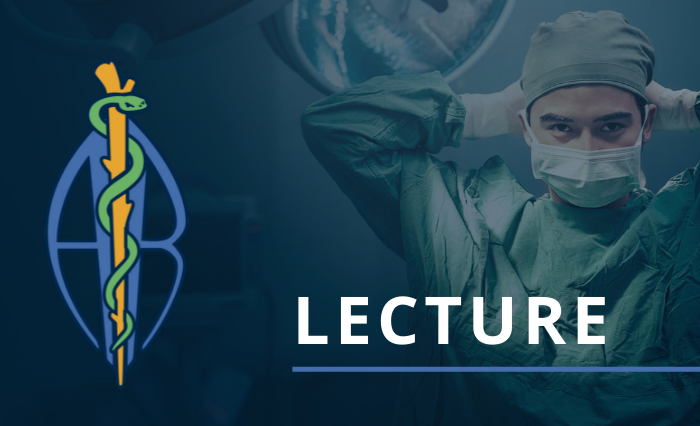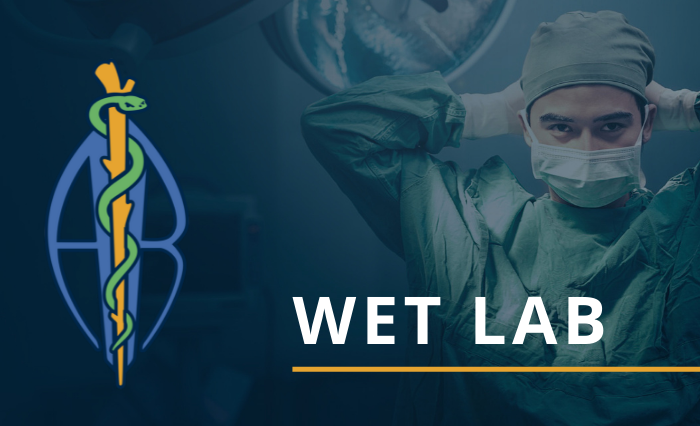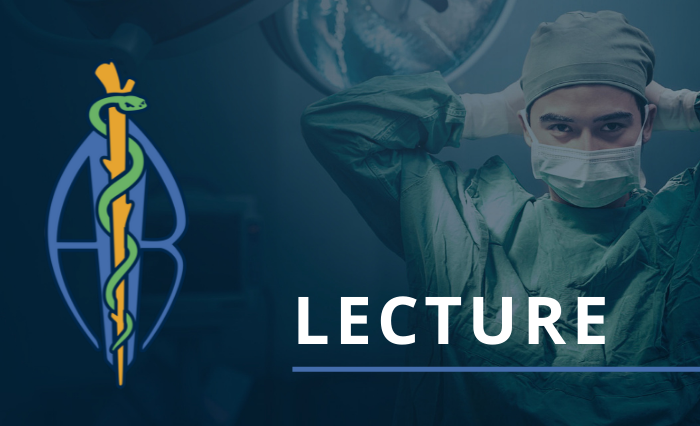What Do I Do Now?
Completed

Date: Wednesday, October 11, 2023
Time: 4:00 pm CTDuration: 60 MinutesRoom: Cumberland Ballroom, Salon ABCD
Moderator: Jose Negron-Garcia
This is an archived event. Please log in with your member account to access these resources.
Similar Events Happening
Morning Wet Lab – Vanderbilt University
Date: Tuesday, October 10, 2023
Time: 8:00 am
Basic swine laparoscopy and endovascular interventions paired with an introduction to stereotaxic, intrathecal surgery, and vascular catheterization in the rat
Time: 8:00 am
Basic swine laparoscopy and endovascular interventions paired with an introduction to stereotaxic, intrathecal surgery, and vascular catheterization in the rat
Afternoon Wet Lab – Vanderbilt University
Date: Tuesday, October 10, 2023
Time: 12:00 pm
Intermediate swine procedures and rat microsurgery and catheterization techniques
Time: 12:00 pm
Intermediate swine procedures and rat microsurgery and catheterization techniques
Automated Blood Sampling in a Telemetry Cardiovascular Dog Colony
Date: Wednesday, October 11, 2023
Time: 10:30 am
Speaker – Amanda Wilsey Abbvie Implementation of Automated Blood Sampling (ABS) allows for uninterrupted cardiovascular data collection with simultaneous blood collection throughout a telemetry dog preclinical study. This reduction shortens study timelines, minimizes CV data artifacts, and considerably reduces compound synthesis and the associated costs. Methods: A colony of telemetry instrumented male beagle dogs were implanted and maintained in-house for non-GLP preclinical cardiovascular safety studies. Evaluation of the ABS telemetry dog cardiovascular model; highlighting the benefits and downfalls of the last seven years since implementing Automated Blood Sampling. Results: Since 2016, telemetry dogs implanted with transmitters and vascular access ports [...]
Time: 10:30 am
Speaker – Amanda Wilsey Abbvie Implementation of Automated Blood Sampling (ABS) allows for uninterrupted cardiovascular data collection with simultaneous blood collection throughout a telemetry dog preclinical study. This reduction shortens study timelines, minimizes CV data artifacts, and considerably reduces compound synthesis and the associated costs. Methods: A colony of telemetry instrumented male beagle dogs were implanted and maintained in-house for non-GLP preclinical cardiovascular safety studies. Evaluation of the ABS telemetry dog cardiovascular model; highlighting the benefits and downfalls of the last seven years since implementing Automated Blood Sampling. Results: Since 2016, telemetry dogs implanted with transmitters and vascular access ports [...]
Evaluation of an African Green Monkey Model of Transient Ischemia
Date: Wednesday, October 11, 2023
Time: 11:00 am
Speaker – Kimicia Isaac, St. Kitts Biomedical Research Foundation / Virscio, Inc. The NIH estimates 800,000 Americans suffer strokes yearly, with significant mortality, long-term disability, and substantial unmet medical need. The lack of translation from small animal models to clinical efficacy has slowed therapeutic development. Nonhuman primates (NHP) share anatomy and physiology with humans important to the clinical pathophysiology of stroke and truly predictive preclinical modeling. An model of transient ischemia is described in adult male African green monkeys (Chlorocebus sabaeus) that promises to enable more robust evaluation of stroke therapeutics. Methods: 11 monkeys received a 180 min occlusion of [...]
Time: 11:00 am
Speaker – Kimicia Isaac, St. Kitts Biomedical Research Foundation / Virscio, Inc. The NIH estimates 800,000 Americans suffer strokes yearly, with significant mortality, long-term disability, and substantial unmet medical need. The lack of translation from small animal models to clinical efficacy has slowed therapeutic development. Nonhuman primates (NHP) share anatomy and physiology with humans important to the clinical pathophysiology of stroke and truly predictive preclinical modeling. An model of transient ischemia is described in adult male African green monkeys (Chlorocebus sabaeus) that promises to enable more robust evaluation of stroke therapeutics. Methods: 11 monkeys received a 180 min occlusion of [...]
Practical Approach to Pain Management for Nonhuman Primates: Enhancing Welfare and Research Outcomes
Date: Wednesday, October 11, 2023
Time: 1:00 pm
Speaker – Jan Bernal Amgen Pain management is a critical component of responsible animal research and care, particularly in the context of nonhuman primates (NHPs) utilized in biomedical and behavioral studies. This presentation aims to provide a comprehensive overview of practical pain management strategies for NHPs, with a focus on enhancing their welfare while optimizing research outcomes. The presentation will begin by defining pain and classifications of pain. It will emphasize the pain pathways and the multimodal approaches effective at each of the pain pathways, encompassing a wide range of medication and procedural options to modulate pain. Attendees will gain [...]
Time: 1:00 pm
Speaker – Jan Bernal Amgen Pain management is a critical component of responsible animal research and care, particularly in the context of nonhuman primates (NHPs) utilized in biomedical and behavioral studies. This presentation aims to provide a comprehensive overview of practical pain management strategies for NHPs, with a focus on enhancing their welfare while optimizing research outcomes. The presentation will begin by defining pain and classifications of pain. It will emphasize the pain pathways and the multimodal approaches effective at each of the pain pathways, encompassing a wide range of medication and procedural options to modulate pain. Attendees will gain [...]
The Vital Role of Capnography in Surgical Research: Enhancing Patient Care and Surgical Outcomes
Date: Wednesday, October 11, 2023
Time: 1:30 pm
Speakers: Jan Bernal Amgen Amy Martunas Vertex Capnography has emerged as an indispensable tool in veterinary medicine, revolutionizing the way we monitor and manage patients during various surgical scenarios. This presentation is dedicated to shedding light on the fundamental principles, practical applications, and clinical benefits of capnography in veterinary practice. The presentation will commence by introducing the basic principles of capnography, elucidating the physiological underpinnings of carbon dioxide (CO2) measurement, and its significance in assessing both ventilatory and circulatory aspects of patient health. Attendees will gain insights into the mechanics of capnography, including the technology behind mainstream and side stream [...]
Time: 1:30 pm
Speakers: Jan Bernal Amgen Amy Martunas Vertex Capnography has emerged as an indispensable tool in veterinary medicine, revolutionizing the way we monitor and manage patients during various surgical scenarios. This presentation is dedicated to shedding light on the fundamental principles, practical applications, and clinical benefits of capnography in veterinary practice. The presentation will commence by introducing the basic principles of capnography, elucidating the physiological underpinnings of carbon dioxide (CO2) measurement, and its significance in assessing both ventilatory and circulatory aspects of patient health. Attendees will gain insights into the mechanics of capnography, including the technology behind mainstream and side stream [...]



